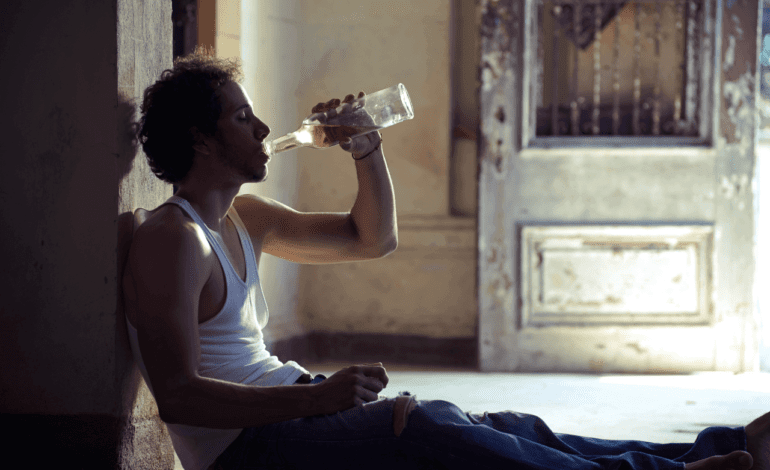Mental illness formally referred to as mental health disorders, is extremely common among adults and children in the United States. Unfortunately, although improved, there is still a stigma associated with mental health disorders, creating barriers to treatment. Mental health disorders range from mood disorders such as bipolar disorder and depression, anxiety disorders, personality disorders to psychotic disorders such as schizophrenia. Although there is no “cure,” the signs and symptoms associated with each mental health disorder can be significantly reduced or eliminated with the appropriate treatment. It is essential to continue to talk about mental health and the realities of mental health disorders in the United States so we, together, can break down the stigma. Statistics show that one in five adults in the United States experiences a mental health disorder each year, and one in six children in the United States, 6-17 years of age, experience a mental health disorder each year. Suicide is highly linked to severe mental health disorders or those left untreated. Suicide is the second leading cause of death in the United States among individuals 10-34 years of age.
Types of mental health disorders
According to the Diagnostic and Statistical Manual of Mental Disorders, 5th edition (DMV-5), there is a wide range of mental health disorders that include the following:
- Neurodevelopmental disorders
- Schizophrenia spectrum and other psychotic disorders
- Bipolar and related disorders
- Depressive disorders
- Anxiety disorders
- Obsessive-compulsive and related disorders
- Trauma and stressor-related disorders
- Somatic symptom and related disorders
- Elimination disorders
- Sleep-wake disorders
- Sexual dysfunctions
- Gender dysphoria
- Disruptive, impulse-control, and conduct disorders
- Substance-related and addictive disorders
- Neurocognitive disorders
- Personality disorders
- Paraphilic disorders
- Medication-induced movement disorders
For simplification purposes, we will address the most common mental health disorders in the United States.
Anxiety Disorders
Anxiety disorders are the most common type of mental health disorder in the U.S., affecting 40 million adults in the United States age 18 and older, or 18.1% of the population every year. Anxiety disorders are highly treatable, yet only 36.9% of those suffering receive treatment. Common anxiety disorders include generalized anxiety disorder (GAD), panic disorder, social anxiety disorder, and specific phobias. Anxiety disorders are characterized by repeated episodes of sudden irrational feelings of intense worry, stress, or fear that can intensify within minutes (panic attacks) or come and go throughout the day. To be diagnosed with an anxiety disorder, signs and symptoms must interfere with daily activities, are out of proportion to the actual trigger or danger, are challenging to control, and must last for some time. Individuals will often prevent places and situations to avoid these feelings.
Bipolar Disorder
Bipolar disorder is a type of mood that is characterized by periods of depression (low moods) alternating with mania (emotional highs). One of the most common myths about bipolar disorder is that these extreme mood swings occur frequently and rapidly, when in fact, episodes of mood swings may occur rarely or multiple times a year. When individuals become depressed, they may feel sad or hopeless and lose interest or pleasure in most activities that they once enjoyed. When an individual’s mood shifts to mania from depression, one may feel extreme happiness, be overly energetic, or be extremely irritable. These mood swings can affect multiple aspects of an individual’s daily life, including sleep, energy, activity, judgment, behavior, and the ability to think clearly.
Signs and symptoms of mania:
- Abnormally upbeat, jumpy, or wired
- Increased activity, energy, or agitation
- An exaggerated sense of well-being and self-confidence
- Decreased need for sleep
- Unusual talkativeness
- Racing thoughts
- Distractibility
- Poor decision-making (going on spending sprees, taking sexual risks, or gambling)
Signs and symptoms of depression:
- Depressed mood, such as feeling sad, empty, hopeless, or tearful
- Marked loss of interest or feeling no pleasure in activities
- Weight gain or loss
- Insomnia or sleeping too much
- Fatigue or loss of energy
- Feelings of worthlessness
- Poor concentration
- Decreased ability to think or concentrate, or indecisiveness
- Suicidal thoughts or attempts
Major depressive disorder
Major depressive disorder, like bipolar disorder, is also a type of mood disorder that is characterized by depression that affects everyday life for at least two weeks in duration. Individuals with depression often experience anxiety. Nearly one-half of those diagnosed with depression are also diagnosed with an anxiety disorder. Depression is marked with feelings of despair and sadness, and many individuals who struggle from depression cannot find a concrete reason why they are feeling this way. On the other hand, there are many underlying triggers associated with depression. These include substance use disorder, extreme stress, past traumas, and anxiety. Like other mental health disorders, signs and symptoms of depression can be minimized with medication, psychotherapy approaches, or both. However, if left untreated, depression can lead to suicidal thoughts or attempts and substance use disorders to cope with the empty feelings associated with depression.
Psychotic disorders
Psychotic disorders such as schizophrenia affect the mind, making it difficult for the individual to process emotions, think clearly, understand reality, behave appropriately, and communicate effectively. These individuals often experience delusions (false beliefs) or hallucinations (seeing, hearing, or feeling things that don’t exist), or both. Other symptoms associated with psychotic disorders include the following:
- Disorganized speech
- Confused thinking
- Odd behavior
- Slowed or unusual movements
- Neglect of personal hygiene
- Loss of interest in activities
- Difficulty at school or work and with relationships
- Cold, detached manner with the inability to express emotion
- Mood swings or other mood symptoms
Mental health treatment in Orange County includes multiple levels of care depending on the severity of the mental health disorder and the individual’s support system. From residential treatment and partial hospitalization to intensive outpatient and regular outpatient, the treatment teams provide compassionate, individualized, and evidence-based treatment plans for each individual who enters treatment for their mental health disorder. Although there is no “cure” for mental health disorders, an outpatient mental health facility in Orange County can provide structured care that includes medications and psychotherapy approaches such as cognitive behavioral therapy, dialectical behavioral therapy, trauma-informed therapy, and many other therapies that are individualized for the client. With the correct treatment regimen, signs and symptoms can be significantly reduced or even eliminated for some periods.
AKUA Mind and Body
AKUA Mind and Body is a full-service addiction and mental health treatment center with locations across California. We specialize in treating individuals who are struggling with mental health disorders and co-occurring substance use disorders. We offer multiple treatment regimens that are tailored to each client. We pride ourselves on having a compassionate and knowledgeable treatment staff who cares about each client and family.




